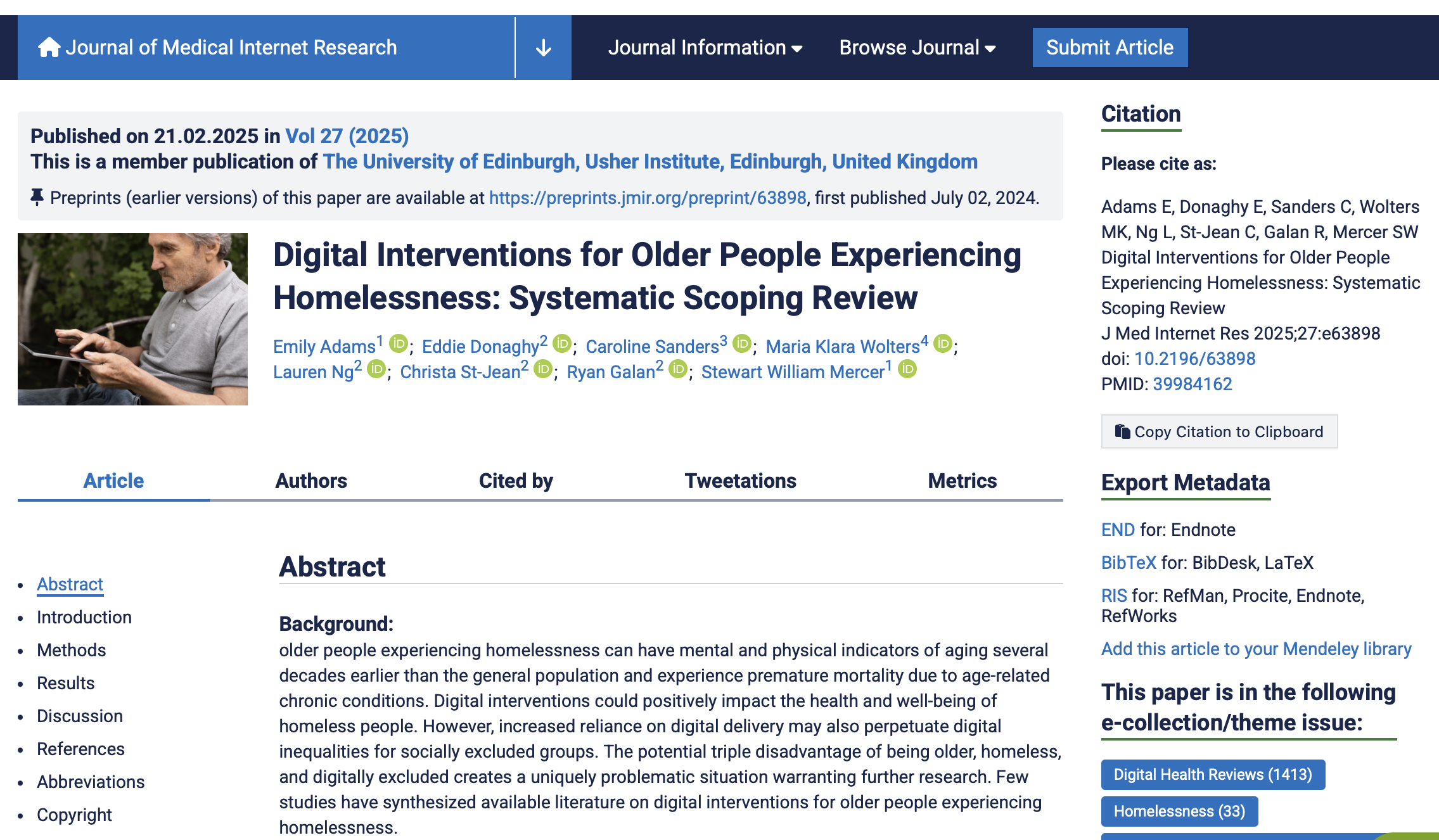A recent journal paper has come to a disappointing conclusion about digital health research. In a review study, researchers at the University of Edinburgh sought to find out how many English-language academic papers have been published so far analyzing digital interventions for older people experiencing homelessness. They found only ten publications worldwide, nine of which were from the United States, and one was about DocRoom’s telemedicine pilot.
This makes the joint publication by the Hungarian Charity Service of the Order of Malta and Semmelweis University a member of a small group of projects that have contributed to improving the care of one of the most vulnerable and digitally excluded groups, the elderly people experiencing homelessness, through digital solutions. While the majority of the US articles focus on veterans, the Hungarian research broadens the scope by demonstrating how telecare interventions can be applied in a European, and within that a Central and Eastern European context.
Based on an analysis of the ten articles found, the researchers identified four types of digital interventions: telemedicine care and support, the distribution of digital tools for digital inclusivity, text reminder messages and digitally supported interventions. The latter group included digitally-supported cognitive behavioral therapy, smoking cessation, promotion of physical activity and a web-based vocational training (with a non-health focus).
Half of the articles analyzed reported an outcome that improved more equitable access to digital tools, while a total of six achieved improvements in the regularity of appointment attendance, continuity of medication or perceived quality of care. However, in addition to the overall positive picture, the authors noted that not all procedures proved successful: for example, the study based on text reminders found no significant difference compared with the control group. In terms of barriers and facilitators to digital interventions, the analysis identified age, lack of digital literacy and access to the internet, and loss or theft of devices as barriers. Facilitators included institutional support and technical assistance, peer support and the distribution of charging stations.
Overall, the study concluded that the ten articles identified supported the feasibility and acceptance of digital practices among older people experiencing homelessness, however, further research and tailored programs are needed to address the specific barriers of this target group.
